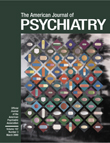Absence of Cognitive Impairment at Long-Term Follow-Up in Adolescents Treated With ECT for Severe Mood Disorder
Abstract
OBJECTIVE: Cognitive functions of adolescents treated with ECT for mood disorder were evaluated at long-term follow-up. METHOD: At an average of 3.5 years (SD=1.7) after the last ECT, 10 subjects treated during adolescence with bilateral ECT for severe mood disorder completed a clinical and cognitive evaluation, including the California Verbal Learning Test and Squire’s Subjective Memory Questionnaire. The same assessments were given to 10 psychiatric comparison subjects matched for sex, age, and diagnosis. RESULTS: All cognitive test scores of the patients treated with ECT were similar to those of the comparison subjects and did not differ from norms from the community. Six of the 10 ECT-treated patients reported having had memory losses immediately after the ECT course, but only one complained of subjective memory impairment at follow-up. CONCLUSIONS: The results suggest that adolescents given ECT for severe mood disorder do not suffer measurable cognitive impairment at long-term follow-up.



